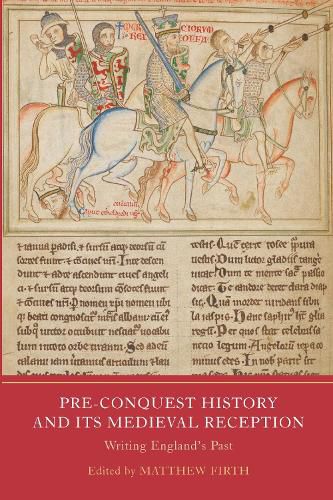Readings Newsletter
Become a Readings Member to make your shopping experience even easier.
Sign in or sign up for free!
You’re not far away from qualifying for FREE standard shipping within Australia
You’ve qualified for FREE standard shipping within Australia
The cart is loading…






Offers insights into the political, social and cultural interests that informed the shaping of England's pre-Conquest history.
The Norman Conquest brought about great change in England: new customs, a new language, and new political and ecclesiastical hierarchies. It also saw the emergence of an Anglo-Norman intellectual culture, with an innate curiosity in the past. For the pre-eminent twelfth-century English historians - such as Eadmer of Canterbury, William of Malmesbury and Henry of Huntingdon - the pre-Conquest past was of abiding interest. While they recognised the disruptions of the Conquest, this was accompanied by an awareness that it was but one part of a longer story, stretching back to sub-Roman Britain. This concept of a continuum of English history that traversed the events of 1066 would prove enduring, being transmitted into and by the works of successive generations of medieval English historians.
This collection sheds new light on the perceptions and uses of the pre-Conquest past in post-Conquest historiography, drawing on a variety of approaches, from historical and literary studies, to codicology, historiography, memory theory and life writing. Its essays are arranged around two main interlinked themes: post-Conquest historiographical practice and how identities - institutional, regional and personal - could be constructed in reference to this past. Alongside their analyses of the works of Eadmer, William and Henry, contributors offer engaging studies of the works of such authors as Aelred of Rievaulx, Orderic Vitalis, Gervase of Canterbury, John of Worcester, Richard of Devizes, and Walter Map, as well as numerous anonymous hagiographies and histories.
$9.00 standard shipping within Australia
FREE standard shipping within Australia for orders over $100.00
Express & International shipping calculated at checkout
Offers insights into the political, social and cultural interests that informed the shaping of England's pre-Conquest history.
The Norman Conquest brought about great change in England: new customs, a new language, and new political and ecclesiastical hierarchies. It also saw the emergence of an Anglo-Norman intellectual culture, with an innate curiosity in the past. For the pre-eminent twelfth-century English historians - such as Eadmer of Canterbury, William of Malmesbury and Henry of Huntingdon - the pre-Conquest past was of abiding interest. While they recognised the disruptions of the Conquest, this was accompanied by an awareness that it was but one part of a longer story, stretching back to sub-Roman Britain. This concept of a continuum of English history that traversed the events of 1066 would prove enduring, being transmitted into and by the works of successive generations of medieval English historians.
This collection sheds new light on the perceptions and uses of the pre-Conquest past in post-Conquest historiography, drawing on a variety of approaches, from historical and literary studies, to codicology, historiography, memory theory and life writing. Its essays are arranged around two main interlinked themes: post-Conquest historiographical practice and how identities - institutional, regional and personal - could be constructed in reference to this past. Alongside their analyses of the works of Eadmer, William and Henry, contributors offer engaging studies of the works of such authors as Aelred of Rievaulx, Orderic Vitalis, Gervase of Canterbury, John of Worcester, Richard of Devizes, and Walter Map, as well as numerous anonymous hagiographies and histories.